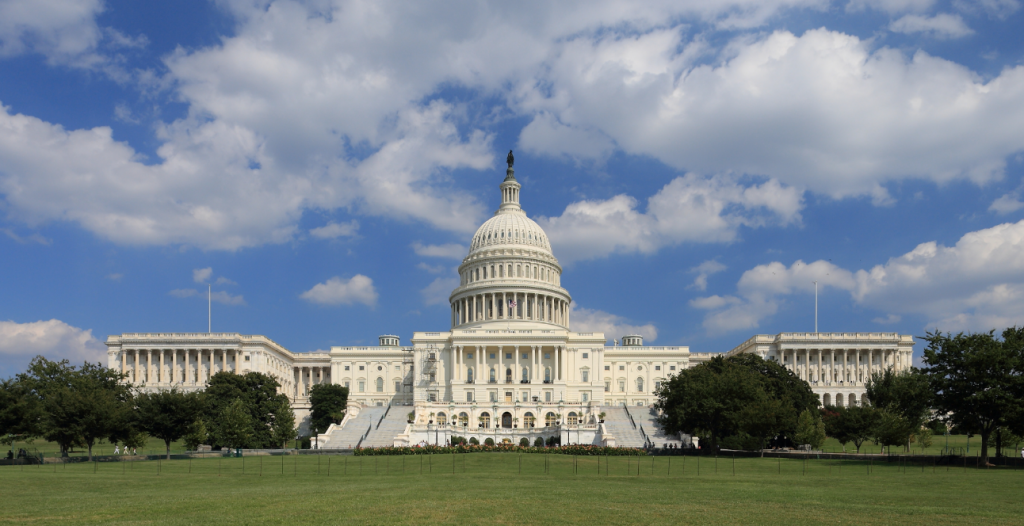
Possible New Federal Grants Rules Would Harm Faith-based Organizations
By Dr. Stanley Carlson-Thies
Editor’s Note: In the wake of an agreement between President Trump and bipartisan congressional leaders on a two-year budget framework, the House and Senate turned from the usual appropriations process to an expedited alternative process. What will happen in the end to provisions such as the one discussed below remains to be seen.
An appropriations bill passed this month by the House of Representatives to fund the federal Departments of Health and Human Services (HHS), Education, and Labor for the next fiscal year includes an unusual provision: it would apply a nondiscrimination regulation that currently applies only to HHS grants to the funding programs operated also by Education and Labor. The HHS rule, promulgated at the end of the Obama administration, prohibits organizations that receive its funds from discriminating on the bases of religion, sexual orientation, or gender identity in their employment decisions and provision of services. It includes no religious exemption to accommodate religious staffing or other faith-based practices. The Trump administration has so far provided only ad hoc solutions for faith-based organizations that need an accommodation. The appropriations bill, if it becomes law, would prohibit such accommodations.
The HHS regulation, adopted as an expression of Obama administration policy, and which came into effect on January 11, 2017, is a broadly-worded prohibition on various forms of discrimination in the use of HHS grant funding (except for TANF funds). It applies to the employment policies of grantees and to how services are delivered, even though the statutes for the programs do not include these broad restrictions; and even though such nondiscrimination requirements as those in state laws generally include some kind of religious exemption.
The HHS regulation came to prominence in 2018, when child welfare officials in South Carolina informed Miracle Hill Ministries, a faith-based agency, that, because of the new HHS rule, it would lose its federal foster care funding unless it ceased recruiting only Christian foster families. South Carolina’s governor intervened, requesting and receiving from HHS a waiver of the prohibition on religious discrimination in services. HHS agreed that the prohibition could not be sustained, in the case of Miracle Hill, under the Religious Freedom Restoration Act (RFRA), which protects the religious exercise of persons and organizations.
More generally, the Trump administration’s response to the HHS rule has been to accept, on an individual basis, requests from faith-based grant applicants for an RFRA-based accommodation of their religious staffing or other faith-based practices. Unfortunately, such an ad hoc approach puts the burden of protecting religious exercise on grant-seeking organizations rather than on government, and discourages grant applications from faith-based organizations that do not have established legal recourse in order to understand and challenge inappropriate grant rules.
The expansion of the application of the HHS rule proposed in the House-passed appropriations bill, H.R. 2740, would further complicate the participation of faith-based organizations in federally funded programs. Section 236 of the bill applies the services and employment nondiscrimination requirement beyond HHS grants to all HHS funding — including contracts, cooperative agreements, and vouchers or certificates. Additionally, it applies the requirement outside of HHS programs to all awards of funding provided by the Department of Labor, the Department of Education, and several other federal agencies. Moreover, Section 236 specifically prohibits HHS from using any of the appropriated funds in order to process and authorize any additional exceptions to the nondiscrimination requirement.
If Section 236 becomes law, the Trump administration could neither continue its ad hoc policy of granting exemptions (since it would be forbidden to use paid staff time for this), nor create by executive action a broad solution to the problem (because the regulation would now have been made into a congressional law, for the one-year appropriations period). If the regulation is not solidified into law, the administration could change it through the regulatory process. This would entail either eliminating it or limiting it in one of two ways — by exempting religious organizations entirely or by restricting the nondiscrimination requirement to the services these organizations offer (not extending to their own employment practices).
The Senate can pass a version of the appropriations bill without Section 236 and then negotiate away the House’s restriction in conference committee. President Trump can veto the appropriations bill if it includes the restriction. Some observers, indeed, have suggested that the goal of the Democratic Representatives who wrote or voted for Section 236 is to force the Senate’s Republican majority to take an unpopular vote to eliminate a nondiscrimination protection from federally funded programs.
That a vote to strip Section 236 is widely considered to expose members of Congress to a damaging charge of conniving in discrimination is a strong reminder of the challenging environment created for policymakers by our increasingly diverse and polarized society. After all, Congress has a duty to protect religious freedom — which is the opposite of the effect of Section 236. At this time for many, federal opposition to discrimination on the bases of sexual orientation and gender identity is the greater priority. Wise members of Congress should be seeking a constructive way to protect to protect rights all around.
Dr. Stanley Carlson-Thies is founder and senior director of the Institutional Religious Freedom Alliance
